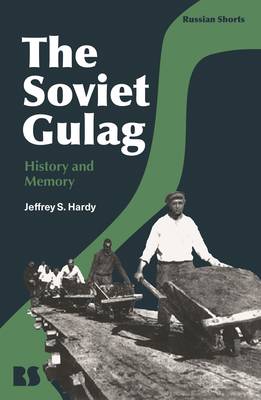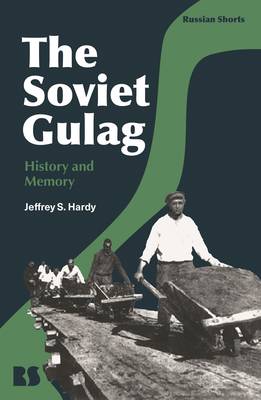
- Afhalen na 1 uur in een winkel met voorraad
- Gratis thuislevering in België vanaf € 30
- Ruim aanbod met 7 miljoen producten
- Afhalen na 1 uur in een winkel met voorraad
- Gratis thuislevering in België vanaf € 30
- Ruim aanbod met 7 miljoen producten
Zoeken
€ 103,45
+ 206 punten
Uitvoering
Omschrijving
A vivid account of the Gulag, the Soviet Union's infamous penal system, this book charts how Bolshevik visions of a humane alternative to Tsarist exile and Western penitentiaries became a chaotic and violent system of mass incarceration that bore a tragic human toll.
As the first concise history in the English language, The Soviet Gulag: History and Memory provides an illuminating account of the Gulag from 1917, through to the end of the Soviet Union and the contested memory of the Gulag that persists today. Beginning with their conception, during the various penal experiments of the 1920s, their expansion, during the campaigns against perceived enemies of the Soviet regime in the 1930s, and their decline in the years proceeding Stalin's death, Jeffrey S. Hardy explores how many facets of Gulag life endured right up until the collapse of the Soviet Union in 1991. He addresses both the intentions of administrators and the experience of inmates, as well as covering the main scholarly debates surrounding these issues, Crucially, the book also examines the post-Soviet era. You discover how politicians, nongovernmental organizations, and Gulag survivors have debated how or even if to commemorate the victims of the Gulag. Hardy reveals that despite numerous monuments and museum displays emerging out of these discussions, the Gulag's legacy remains hotly contested in Russia todaySpecificaties
Betrokkenen
- Auteur(s):
- Uitgeverij:
Inhoud
- Aantal bladzijden:
- 144
- Taal:
- Engels
- Reeks:
Eigenschappen
- Productcode (EAN):
- 9781350128194
- Verschijningsdatum:
- 21/09/2023
- Uitvoering:
- Hardcover
- Formaat:
- Genaaid
- Afmetingen:
- 127 mm x 203 mm
- Gewicht:
- 267 g

Alleen bij Standaard Boekhandel
+ 206 punten op je klantenkaart van Standaard Boekhandel
Beoordelingen
We publiceren alleen reviews die voldoen aan de voorwaarden voor reviews. Bekijk onze voorwaarden voor reviews.







